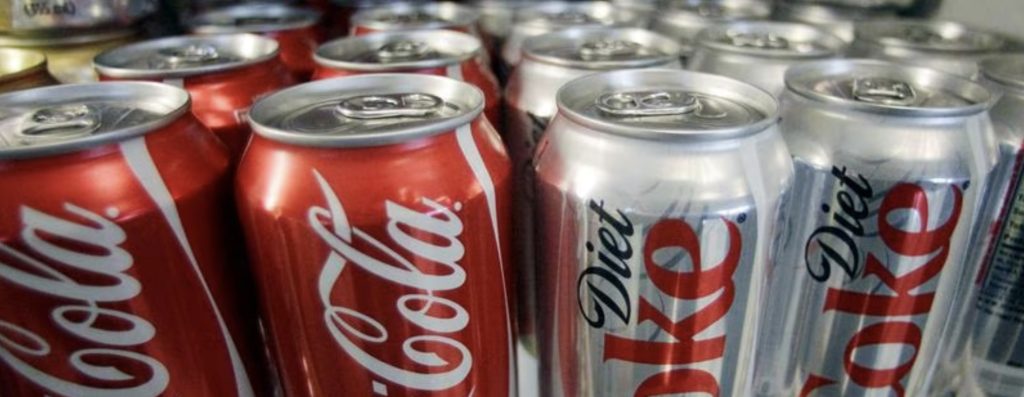By Mark Heim
Aspartame sweetener, used in Diet Coke, will be declared by the World Health Organization’s cancer research agency as a possible carcinogen, according to a report.
The substance, the most commonly used artificial sweeteners, will be considered “possibly carcinogenic to humans” for the first time by the International Agency for Research on Cancer (IARC), Reuters reports.
The IARC has two more serious categories, “probably carcinogenic to humans” and “carcinogenic to humans”.
The report, citing two sources, indicates the IARC ruling is intended to assess whether something is a potential hazard or not, based on all the published evidence. It should be noted, however, that, according to Reuters, the findings do not take into account how much of a product a person can safely consume.
The Joint FAO/WHO Expert Committee on Food Additives (JECFA) has been reviewing aspartame use this year. According to a report, both JECFA and IARC are set to make their findings public on July 14.
“IARC has assessed the potential carcinogenic effect of aspartame (hazard identification),” an IARC spokesperson confirmed to the Guardian.
“Following this, the joint FAO/WHO expert committee on food additives will update its risk assessment exercise on aspartame, including the reviewing of the acceptable daily intake and dietary exposure assessment for aspartame. The result of both evaluations will be made available together, on 14 July 2023.”
American Beverage released the following statement in response to the report on the safety of aspartame:
“There is a broad consensus in the scientific and regulatory community that aspartame is safe. It’s a conclusion reached time and time again by food safety agencies around the world.
“IARC is not a food safety agency. The FDA says JECFA is better suited to assess any risk associated with aspartame. And in its letter to WHO, HHS said ‘an IARC review of aspartame… would be incomplete and its conclusions could be confusing to consumers.’ We share this concern.
“JECFA, the WHO-FAO expert agency on the safety of food additives, will consider all the evidence for all potential health outcomes and, unlike IARC, will focus on the risk to human health. Even IARC states, as recently published on its website, JECFA is the appropriate authority to undertake risk assessment.
“The purpose and expertise of regulatory agencies is to ensure safety over time. We welcome that. The safety of our products is the highest priority for our industry. The fact that food safety agencies worldwide, including the FDA, continue to find aspartame safe makes us confident in the safety of our products.”











